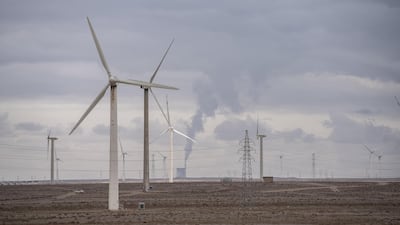The International Energy Agency urged countries to curb new fossil fuel investments and limit sales of internal combustion engine passenger cars to achieve their net-zero targets by 2050.
The Paris-based agency's roadmap to carbon neutrality calls for no new investment in fossil fuel supply projects and no further final investment decisions in new unabated coal plants, which uses the fuel without lowering its carbon impact.
It also recommended halting sales of new internal combustion engines by 2035 and urged the global electricity sector to achieve net-zero emissions by 2040.
"The scale and speed of the efforts demanded by this critical and formidable goal – our best chance of tackling climate change and limiting global warming to 1.5 °C – make this perhaps the greatest challenge humankind has ever faced," Fatih Birol, executive director of the IEA said during the launch of the report, which is the first of its kind for the agency.
The roadmap comes amid sweeping changes in global energy policy, particularly made by the top producers for oil and gas.
Oil companies in the US, the biggest hydrocarbons producer, are facing increasing scrutiny as the Joe Biden administration continues to push for a transition to cleaner sources of energy to lower emissions.
The US has frozen new exploration activities on federal lands and has rejoined the Paris Agreement, which seeks to limit emissions to below 2°C above pre-industrial levels. It also plans to halve emissions from 2005 levels by 2030.
A number of countries adopted positions on carbon neutrality last year after movement restrictions to curb the spread of the Covid-19 pandemic led to a record fall in carbon emissions.
The IEA's roadmap to net-zero also calls for annual additions of solar photovoltaic capacity to reach 630 gigawatts by 2030 and wind power generation to hit 390 gigawatts.
This addition will be four times the record level of capacity added in 2020.
"For solar PV, it is equivalent to installing the world’s current largest solar park roughly every day," the IEA said.
A worldwide push to increase energy efficiency is part of these efforts, the agency added.
The initiatives will cause the global rate of energy efficiency improvements to average 4 per cent annually through 2030.
The figure is three times the average over the past 20 years.
However, some experts have said the IEA's net-zero roadmap is not the most ambitious.
The pathway to carbon neutrality recommended by the agency is "far from being the most conservative [and] is more than just a token effort”, Joeri Rogelj, director of research, Grantham Institute, Imperial College London, said.


